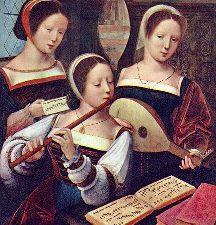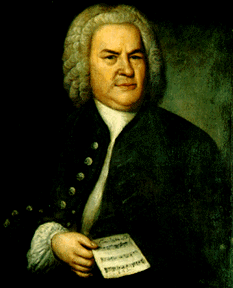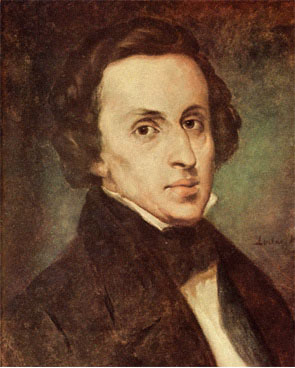Site about Music - Art & Math


 The Art of Music has a long history paralleling that of civilization itself. The science of music –studies in sound- also began in antiquity. Chinese and Hindu philosophers were bemused by the natural laws that seemed to determine the nature of the sounds made when a taut string was plucked or a hollow gourd tapped.
The Art of Music has a long history paralleling that of civilization itself. The science of music –studies in sound- also began in antiquity. Chinese and Hindu philosophers were bemused by the natural laws that seemed to determine the nature of the sounds made when a taut string was plucked or a hollow gourd tapped.
The Greek scholar Pythagoras ( about 500b.c.) made a study of vibrating strings, and determined the conditions under which two musical tones sounded together will make a pleasing combination. The Middle Ages the University at Notre Dame in Paris saw the creation of a new kind of music called organum. Secular music was performed throughout Europe by the troubadours and trouvères of France. And it was during these "Middle Ages" that Western culture saw the appearance of the first great name in music, Guillaume de Machaut.
Generally considered to be from ca.1420 to 1600, the Renaissance (which literally means "rebirth") was a time of great cultural awakening and a flowering of the arts, letters, and sciences throughout Europe.
During the Renaissance one of the main forms of entertainment was music and dance. Music became a part of everyday life as people began to play music and sing for enjoyment. They experimented with new types of instruments and combinations of voices. Music was both an art form and a form of entertainment
New polyphonic forms were devised, and just as during the Renaissance there was an art of the counterpoint that was an essential skill for every baroque composer. Canons and fugues, two very strict forms of imitational polyphony, were extremely popular. In comparison with medieval music, Renaissance harmony was more unrestrained and more expressive - the period between Josquin Deprez and Palestrina is known as "the golden age of polyphony”.
Because of the invention of the printing press, this era is the first where much of the music survives to this day. This fact has led to many Renaissance composers being recognized as outstanding composers. Thomas Tallis (1510-1585),Claudio Monteverdi (1567-1643), Giovanni Pierluigi da Palestrina (1526-1594),Orlando de Lassus (1530-1594). Baroque (pronounced /bəˈroʊk/, bə-rohk) is an artistic style prevalent from the late 16th century to the early 18th century.
The Baroque period (ca.1600 to 1750) saw composers beginning to rebel against the styles that were prevalent during the High Renaissance. The late Baroque style was polyphonically complex and ornamental and rich in melodies. Composers of the Classical era deviated from the evolution of their predecessors - their music had a considerably simpler texture. It's a bit of an irony that two of J.S. Bach's children, Carl Philipp Emanuel (C.P.E.) a Johann Christian (J.C.), belonged among the leaders of the new Classical movement. Their father was the greatest figure in the Baroque style and thanks to the new era of his children, he became old-fashioned.
Baroque composers wrote in many different musical genres. Opera, invented in the late Renaissance, became an important musical form during the Baroque, with the operas of Alessandro Scarlatti, Handel, and others. The oratorio achieved its peak in the work of Bach and Handel; opera and oratorio often used very similar music forms, such as a widespread use of the da capo aria.
Keyboard works were sometimes written largely for the pleasure and instruction of the performer. These included a series of works by the mature Bach that are widely considered to be the intellectual culmination of the Baroque era: the Well-Tempered Clavier, the Goldberg Variations, and The Art of Fugue.
From roughly 1750 to 1820, artists, architechts, and musicians moved away from the heavily ornamented styles of the Baroque and the Rococo, and instead embraced a clean, uncluttered style they thought reminiscent of Classical Greece.
The best-known composers from this period are Joseph Haydn, Wolfgang Amadeus Mozart, Ludwig van Beethoven, and Franz Schubert; other notable names include Luigi Boccherini, Muzio Clementi, Antonio Salieri, , and Christoph Willibald Gluck. Ludwig van Beethoven is also regarded either as a Romantic composer or a composer who was part of the transition to the Romantic.
Franz Schubert is also something of a transitional figure, as are Johann Nepomuk Hummel, Mauro Giuliani, Friedrich Kuhlau, Luigi Cherubini, Jan Ladislav Dussek, and Carl Maria von Weber. The period is sometimes referred to as the era of Viennese Classic or Classicism (German: Wiener Klassik), since Wolfgang Amadeus Mozart, Joseph Haydn, Antonio Salieri, and Ludwig van Beethoven all worked at some time in Vienna, and Franz Schubert was born there.
Classicism is conservatism in creativity with emphasis on balance, control, proportion, symmetry and restraint. Romanticism is a more radical kind of expression, it seeks out the new, the curious, and the adventurous. It is characterized by restless seeking and impulsive reaction. It was an artistic, literary, and intellectual movement that originated in Europe toward the end of the 18th century and in most areas was at its peak in the approximate period from 1800 to 1850.
Throughout the remainder of the nineteenth-century (from ca. 1820 to 1900), artists of all kinds became intent in expressing their subjective, personal emotions. "Romanticism" derives its name from the romances of medieval times long poems telling stories of heroes and chivalry, of distant lands and faraway places, and often of unattainable love.
Ludwig van Beethoven, Hector Berlioz, Richard Wagner, Franz Schubert, Frédéric Chopin, Robert Schumann, Franz Liszt, Niccolo Paganini.
In the early 20th century, many composers, including Rachmaninoff, Richard Strauss, Giacomo Puccini, and Edward Elgar, continued to work in forms and in a musical language that derived from the 19th century. However, modernism in music became increasingly prominent and important; among the most important modernists were Alexander Scriabin, Claude Debussy, and post-Wagnerian composers such as Gustav Mahler and Richard Strauss, who experimented with form, tonality and orchestration. Busoni, Stravinsky, Schoenberg, and Schreker were already recognized before 1914 as modernists, and Ives was retrospectively also included in this category for his challenges to the uses of tonality. Composers such as Ravel, Milhaud, and Gershwin combined classical and jazz idioms.
By the turn of the century and for the next few decades, artists of all nationalities were searching for exciting and different modes of expression. Composers such as Arnold Schoenberg explored unusual and unorthodox harmonies and tonal schemes. French composer Claude Debussy was fascinated by Eastern music and the whole-tone scale, and created a style of music named after the movement in French painting called Impressionism. Béla Bartók, Gustav Mahler, Dmitri Shostakovich, Igor Stravinsky.
To some extent, European and the US traditions diverged after World War II. Among the most influential composers in Europe were Pierre Boulez, Luigi Nono, and Karlheinz Stockhausen. The first and last were both pupils of Olivier Messiaen. An important aesthetic philosophy as well as a group of compositional techniques at this time was serialism (also called "through-ordered music", "'total' music" or "total tone ordering"), which took as its starting point the compositions of Arnold Schoenberg and Anton Webern (but was opposed to traditional twelve-tone music), and was also closely related to Le Corbusier's idea of the modulor.[10] However, some more traditionally based composers such as Dmitri Shostakovich and Benjamin Britten maintained a tonal style of composition despite the prominent serialist movement.(from Wikipedia).

1685-1750.
In his own time, Bach was respected as a virtuoso organ player-now he is known and appreciated for the emotional depth of his Baroque music.

1756-1791
Leopold Mozart was the son of an Augsburg bookbinder. His education was broadly based in the sciences and arts-organ and violin and singing were among his accomplishments. He married Anna Maria Pertl in 1747 and they settled permanently in Salzburg.

The van Beethoven family was Flemish by descent, its origins in the farming area embraced by Brussels, Louvain and Mechelen in what is now Belgium. The fine bass voice of the composer’s grandfather had so impressed the Elector-Archbishop of Cologne(who also held the Bishopric of Liege), that he engineered the singer’s transfer to the Court Chapel at Bonn in 1733.
Read the full story »
Frédéric François Chopin (/ˈʃoʊpæn/; French pronunciation: [fʁe.de.ʁik ʃɔ.pɛ̃]; 22 February or 1 March 1810 – 17 October 1849), born Fryderyk Franciszek Chopin,[at Zelazowa Wola, near Warsaw, on 1 March 1810. His father was Nicolas Chopin, born in Marainville, Vosges, in 1771.
Read the full story »